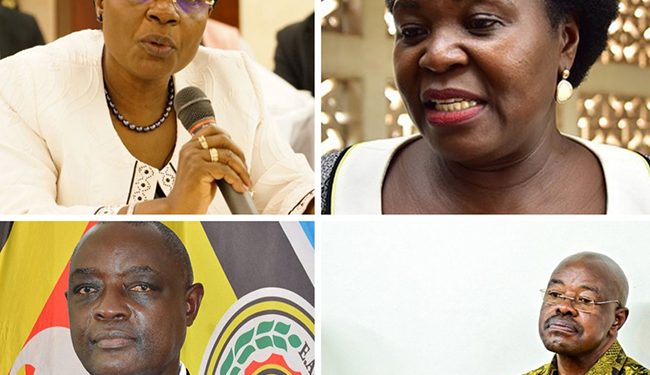Uganda is currently in the throes of “Cabinet Fever,” with intense speculation surrounding an imminent reshuffle that could see the departure of key ministers, including those implicated in the Mabaati scandal.
The political climate has become increasingly charged, with reports indicating that ministers are resorting to seeking favors from shrines and churches to secure their positions.
A fortnight ago, this website reported on the exodus of ministers from their workstations as they divert their attention towards retaining their offices.
Work in government offices has witnessed a slowdown, with ministers channeling their energies into political maneuvers to safeguard their positions.
President Yoweri Museveni, who recently concluded his stay at Kisozi Farm, is expected to announce the reshuffle.
While the new list remains inaccessible, State House sources have disclosed that the President’s decision-making process involves considerations of corruption and political influence.
Corruption allegations, particularly in the aftermath of the iron sheets scandal, have become a focal point for Museveni.
Three ministers, including Goretti Kitutu, Amos Lugolobi, and Agnes Nandutu, faced legal consequences, spending weeks in Luzira Prison over accusations of stealing and selling iron sheets intended for the Karamojong community.
Museveni has repeatedly emphasized his commitment to combating corruption through decisive political action.
Political influence in constituencies is another pivotal factor in the reshuffle.
As the 2026 elections loom, Museveni is reportedly seeking ministers who can garner significant support for him and the National Resistance Movement (NRM) party.
Ministers who lost elections in the previous year but were retained in the cabinet are perceived as liabilities unless they contest and win in 2026.
Among those at risk is Energy Minister Ruth Nankabirwa, who lost her seat to Christine Nakimwero Kaaya. Similarly, Defense and Veterans Affairs Minister Vincent Bamulangaki Ssempijja, defeated in Kalungu East, and Lands Minister Judith Nabakooba, who lost to NUP’s Joyce Bagala in Mityana, may face exclusion from the reshaped cabinet.
The trio implicated in the Mabaati scandal – Kitutu, Lugolobi, and Nandutu – appear to have slim chances of making a return to the cabinet. Museveni’s reshuffle is seen not only as a response to the fallout from the scandal but also as an effort to construct a more dynamic and effective government aligned with his vision.
As Uganda eagerly awaits the official announcement, the intrigue surrounding the fate of these ministers adds a layer of uncertainty to the political landscape.
The reshuffle’s potential impact on the trajectory of the government in the lead-up to the crucial 2026 elections remains a subject of contemplation for the nation.





